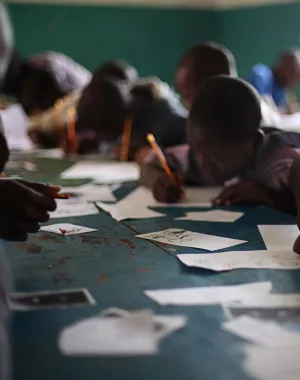Overview
Around the world, children are recruited and used in conflict by armed forces and groups in direct combat and support roles. This violates international law and yet reports from children, NGOs and UN agencies suggest that recruitment is increasing. In armed forces and groups children are directly exposed to violence – as perpetrators, victims and witnesses – experiencing the physical and psychological effects of violence long after they have left. Many children are sexually abused, beaten, killed or permanently injured. On leaving armed groups, children may face huge levels of stigma and discrimination. Children are often rejected by their families and communities, denied access to services, and even detained by authorities as a result of their association with armed groups.
The severity, complexity and varied nature of each child’s experience means that children need individualised and tailored support to reintegrate back into society, and it should ideally take place in the context of an ongoing peace process. In contexts where there is still active conflict, extreme poverty and lack of state infrastructure, children’s families and communities also need support to enable children to reintegrate. Best practice reintegration programmes and initiatives are comprehensive in this regard, and as such should be long-term.
Yet the current provision of reintegration support is far from ideal. This report identifies key barriers to reintegration programming that War Child has experienced and witnessed.
War Child wants change. We want to see policy-makers, donors and practitioners dismantle these barriers and ensure sustainable reintegration for children that prevents them from being re-recruited and that contributes to re-building social cohesion in the long-term. All children should have access to quality, context-specific and individualised reintegration support, irrespective of the armed force or group that they have been associated with.

